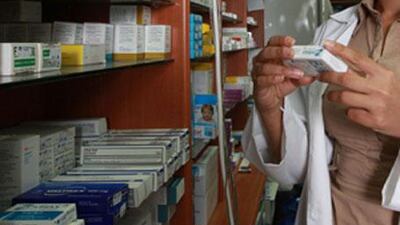ABU DHABI // A culture of overprescribing medication is putting lives at risk and having a serious impact on public health, the capital's health authority warned yesterday. Doctors have also been prescribing unnecessary drugs because of financial kickbacks offered by pharmaceutical companies, said the Health Authority-Abu Dhabi (HAAD).
A report compiled by the authority and obtained by The National found several other fundamental gaps in patient care, including dangerously imprecise prescriptions and rushed consultations. It said the overuse of antibiotics and other medicines was "posing a particular challenge to the UAE" and resulting in serious adverse reactions including deaths and was a waste of financial resources. Taking antibiotics unnecessarily can lead to the emergence of drug-resistant "superbugs".
While the number of people who have died from such practices is negligible, according to Dr Mohammed Abuelkhair, the head of the medicines regulation unit at HAAD, the authority is making the effort to stop unnecessary drug use. He said the authority would punish any physicians and pharmacists who did not prioritise patients' needs. "Rational drug use is not complicated," he said. "It involves giving the right drug to the right patient, at the right time, in the right dose and for the right indication."
The amount of money spent on antibiotics in Abu Dhabi and Al Ain has more than doubled in just five years, according to figures released by HAAD. Although the population has also risen significantly in that time, that rise is far outstripped by the increase in overall drug use. In 2003, Dh60 million (US$1.6m) worth of antibiotics were consumed. By 2008, it was Dh146m, according to the healthcare consultancy firm IMS.
Consumption of anti-inflammatories such as ibuprofen, aspirin and naproxen has also increased dramatically. By 2008, patients had spent Dh60m on that class of drugs, more than double the Dh25m spent in 2003. "One of the negative impacts we find of irrational drug use is that physicians mix different medicines and don't check the effects of this," Dr Abuelkhair said. "If a physician is indiscriminately using a particular product or combinations of products for all their patients, it can have very dangerous effects including mortality."
Dr Abuelkhair's unit is finalising new clinical guidelines, which it hopes will go a long way towards eradicating overuse of medicines, particularly on the part of the physicians and pharmacists. "We have seen that more and more physicians focus on a few particular drugs, branded or generic, and prescribe it for all the patients without taking individuality into account. This is not in line with any clinical guidelines.
"They get rewards from the pharmaceutical company for doing this but it is not legal," Dr Abuelkhair said. Drawing on international resources such as clinical guidelines from the US the team plans to release its own guidelines next year. A new pharmacy law is also expected to be introduced to replace the existing 1983 legislation. "If you are a practising physician you must adhere, wherever possible, to international guidelines.
"It is not difficult to do. Start the patient on a low dose if they do need medication, then if it does not work you can try increasing the dose rather than switching to a new drug," Dr Abuelkhair said. Although there are international guidelines covering every aspect of health care, Dr Abuelkhair said it was not practical for Abu Dhabi to simply adopt all of them, as there could be differences in terms of availability of drugs and diagnostic equipment.
"We will create our own [guidelines]," he said, "and there will be no reason for doctors to prescribe or patients to take drugs unnecessarily." munderwood@thenational.ae

